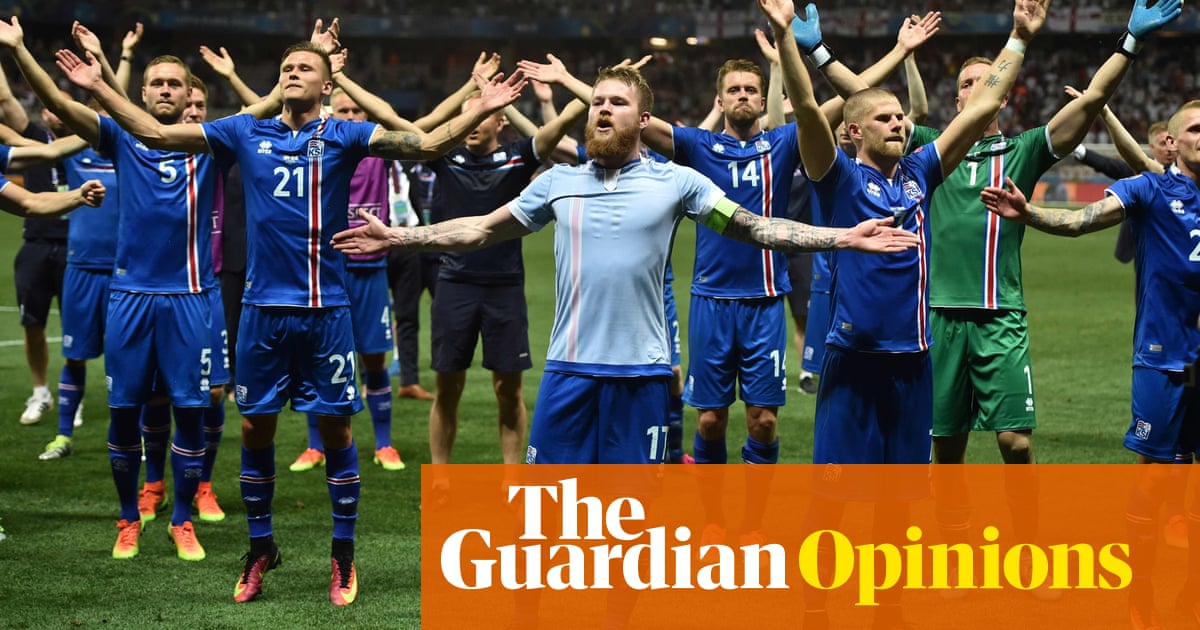
“European champions – you’ll never sing that.” It’s about three hours before England are due to face Denmark in their second game of Euro 2024 and we find ourselves surrounded by thousands of red shirts in the salubrious surroundings of Frankfurt’s Opernplatz. The Denmark fans, overlooked by the magnificent Alte Oper house that was rebuilt in the 1970s after being destroyed by Allied bombs in 1944, have clearly been working on the impressive repertoire of songs referencing previous English failures that would be repeated throughout the day.
On this occasion, they are being aimed in our direction. Which is probably no surprise given we are possibly the only three England supporters who decided to soak up the pre-match atmosphere in this part of town after making last-minute arrangements to meet some old Danish friends who had travelled to Germany for the game.
Plenty of Danes are only too happy to remind us of their unexpected triumph at the 1992 Euros after their team were drafted in as a late replacement for Yugoslavia – the former Arsenal midfielder John Jensen was spotted among the throng – or insist “it’s never coming home”. Everyone is very friendly and always ready for a chat: we are approached by one Denmark supporter who is desperate to know whether we’ve heard of Croydon Athletic because his dad owned the non-league club before selling it to Stormzy and the former Crystal Palace forward Wilfried Zaha last summer. Welcome to fan zone life at Euro 2024, where there is definitely never a dull moment.
The 2006 World Cup brought the introduction of what were then known as Fifa’s “Fan Fests” in Germany’s 12 host cities – with spectacular success – and the opportunity to experience another tournament in the country could not be missed. Even if the weather has struggled at times to live up to the golden few weeks of what became known as the Sommermärchen (summer fairytale) 18 years ago, the fan zones are helping to create similar feeling.
From the spectacular backdrop of Munich’s Olympic Stadium – which I remember visiting in 2006 to watch Brazil defeat Ghana in the last 16 of the World Cup – to Stuttgart’s and Hamburg’s enormous public viewing areas at Schlossplatz and Heiligengeistfeld respectively, they have made every match of the group stage a major event, regardless of where it is taking place.
Perhaps most striking has been the number of expatriates in Germany who have taken to the streets to support their countries of origin. Turkey fans have unsurprisingly dominated in that regard but Albania, Croatia and Georgia fans were also well represented.
Fifa estimated about a quarter of supporters who travelled to each city in 2006 had tickets for matches and even more without tickets are expected this time. Supporters from Hungary, Romania and Ukraine, in particular, have packed out the fan zones when their teams were in action and members of Scotland’s Tartan Army were everywhere you went in Germany.
Germany’s location at the centre of the continent certainly helps – it shares a border with nine countries and has the infrastructure to cope with 24 teams and their fans. We spotted supporters from 23 of them during a week, the only exception being Poland, who coincidentally became the first team to be eliminated on the day we returned to the UK.
England’s fans, after a shaky start in Gelsenkirchen before the team’s opening game against Serbia, were largely on their best behaviour in Frankfurt. They and the Denmark supporters were praised by the police for showing “peaceful togetherness on the streets” as many headed to the 1.4km-long fan zone along the riverbank. Perhaps some of the more experienced could recall what happened in 2006 in Stuttgart when nearly 400 supporters were banned from the city centre after being arrested before England’s game against Ecuador.
It may be a challenge for the organisers of the next tournament in Britain and Ireland to replicate Germany’s fan zone success in four years’ time. A 2,000-capacity venue set up for Euro 2024 in Brighton with 15ft fences has been criticised for resembling a “compound”. Several “event zones” are being planned in all nine host cities, including Belfast, Cardiff, Dublin, Edinburgh and London.
Some fans in Germany have been camping in forests to avoid the steep rise in hotel prices and they – and the owners of the country’s fantastic beer gardens – will be hoping for an improvement in the forecast over the coming weeks. But the end of the group stages marks a new phase for the tournament as teams and their fans head home. For anyone who made the trip, the memories will last a lifetime.












